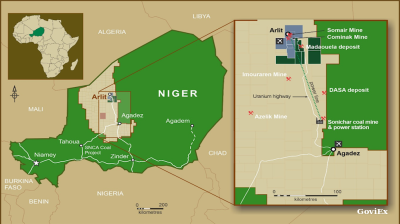The wave of demonstrations that swept Iran was about much more than economic hardship and was driven by young Iranians who will no longer defer to the ageing revolutionary elite, Iran’s Tasnim news agency reported Iranian President Hassan Rouhani as saying on January 9.
“It would be a misrepresentation and also an insult to Iranian people to say [the protesters] only had economic demands. People had economic, political and social demands,” the 69-year-old centrist and pragmatist, re-elected in May last year, reportedly said in a swipe at hardliners who have tried to pin the blame for the protests entirely on Rouhani’s management of the economy.
At least 21 people died during the unrest over the new year period, which seems to have been largely led by the under-25s, a generation that faces a youth unemployment rate of almost 30% and is unhappy at the slow progress made by Rouhani in securing more civil rights for Iranians in the theocratic republic.
“We cannot pick a lifestyle and tell two generations after us to live like that. It is impossible... The views of the young generation about life and the world are different than ours,” the news agency also quoted Rouhani as saying.
In further reported comments, the state-run Iranian Students News Agency quoted Rouhani as stating that the protesters “are rightfully saying, ‘see us, hear us and address our needs’… [they] have demands that are partly economic, cultural, social and security-based”.
Rouhani also urged the lifting of curbs on social media, such as the hugely popular social networking app Telegram used by more than half of Iran’s population of 80 million. They were brought in during the demonstrations in an effort at thwarting anti-government protesters’ communications.
The protests undoubtedly began over economic hardship faced by the working class, but since they were quelled the discussion has turned to the question of to what extent they then became politicised with demands for reform in other areas apart from economic policy. Initial anger very much focused on rising food prices, such as those of eggs. The overall unemployment rate in Iran officially stands at almost 13% but certain parts of the country suffer joblessness rates of around 60%. What’s more stories of graduates emerging from Iranian universities with no hope of finding a job matching their hard-earned qualifications abound.
The unrest spread to more than 80 cities and towns. There were more than 1,000 arrests, according to Iranian officials. Hamid Shahriari, the deputy head of the Iranian judiciary, has said that all the ringleaders have been identified and detained. He suggested that they will face severe punishment, and even capital punishment.
A 22-year-old detainee, meanwhile, has died in prison and there are unconfirmed reports of two other such deaths in custody. Director of the Prisons Organization, Mostafa Mohebbi, said on the judiciary’s official website that “Sina Ghanbari hanged himself in a toilet on Saturday”.
In Iran, it is the supreme leader who by far wields most power. He is commander-in-chief of the armed forces, appoints the heads of the judiciary and gives the green light, or otherwise, to ministerial appointments. He also has the final say on foreign policy.
Rouhani’s plans to secure sufficient economic growth in Iran have been disrupted by the arrival of Donald Trump in the White House a year ago. Trump has failed to fully endorse the 2015 nuclear deal which lifted crippling economic sanctions against the Islamic Republic in return for measures designed to ensure it does not pursue the development of a nuclear weapon. Far greater flows of foreign investment and trade might have flowed to Iran if the US had properly backed the accord. As things stand, many investors and traders are wary of committing to business with Iran, especially as Trump may still push ahead with decisions that could ultimately wreck the nuclear deal or reintroduce heavy sanctions that could leave companies involved with the Iranians exposed to penalties from Washington.
News

GoviEx, Niger extend arbitration pause on Madaouela uranium project valued at $376mn
Madaouela is among the world’s largest uranium resources, with measured and indicated resources of 100mn pounds of U₃O₈ and a post-tax net present value of $376mn at a uranium price of $80 per pound.

Brazil’s Supreme Court jails Bolsonaro for 27 years over coup plot
Brazil’s Supreme Court has sentenced former president Jair Bolsonaro to 27 years and three months in prison after convicting him of attempting to overturn the result of the country’s 2022 election.

Iran cleric says disputed islands belong to Tehran, not UAE
Iran's Friday prayer leader reaffirms claim to disputed UAE islands whilst warning against Hezbollah disarmament as threat to Islamic world security.

Kremlin puts Russia-Ukraine ceasefire talks on hold
\Negotiation channels between Russia and Ukraine remain formally open but the Kremlin has put talks on hold, as prospects for renewed diplomatic engagement appear remote. Presidential spokesman Dmitry Peskov said on September 12, Vedomosti reports.



